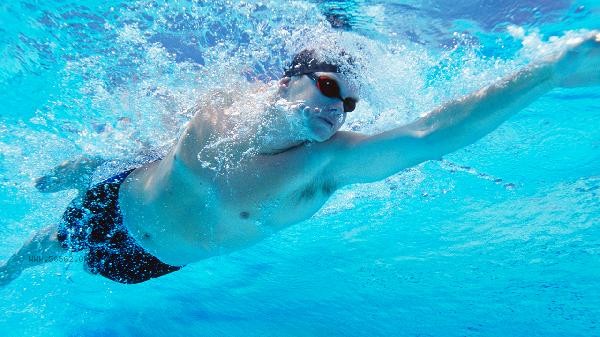Eating in moderation 1-2 hours before swimming is more scientific, as swimming on an empty stomach or with a full stomach may cause discomfort. The timing of swimming and dietary arrangements should consider factors such as digestive burden, energy supply, and blood sugar fluctuations.

Before swimming, the diet should mainly consist of easily digestible carbohydrates, with a small amount of high-quality protein, such as bananas paired with sugar free yogurt or whole wheat bread paired with boiled eggs. The food volume should be controlled at 200-300 grams to avoid the burden on the gastrointestinal tract caused by high-fat and high fiber foods. Eating at this time can store glycogen for muscles, prevent dizziness and fatigue caused by hypoglycemia, and ensure basic emptying of stomach food, reducing the risk of reflux during swimming. Be careful to avoid drinking carbonated beverages to prevent stomach bloating during exercise. Supplementing nutrients within 30 minutes after swimming is more beneficial for recovery. It is recommended to choose a combination of fast absorbing carbohydrates and protein, such as instant oats mixed with whey protein powder, or rice paired with steamed fish. At this time, the body is in a window period of synthetic metabolism, and timely supplementation can help repair muscle micro injuries and promote glycogen synthesis. If the swimming intensity is high, additional electrolyte drinks can be added to balance body fluids. But it is necessary to control the total calorie intake to not exceed 1.5 times the exercise expenditure, in order to avoid offsetting the weight loss effect of exercise.

Diet before and after swimming should be adjusted according to individual digestive ability, and those with gastrointestinal sensitivity should extend the interval between meals. Whenever eating, chew slowly and avoid consuming alcohol or spicy food immediately after swimming to stimulate the gastrointestinal tract. It is recommended to record the exercise performance under different dietary arrangements and find the most suitable eating plan for one's own metabolic characteristics. Long term regular swimmers can develop a periodic diet plan under the guidance of a nutritionist, scientifically matching nutrient intake with training intensity.







Comments (0)
Leave a Comment
No comments yet
Be the first to share your thoughts!